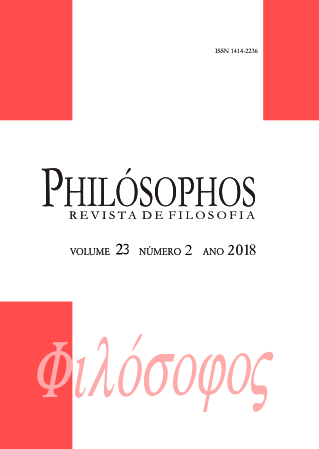Nietzsche, a crítica ao antiquarianismo e uma nova história dos valores
DOI:
https://doi.org/10.5216/phi.v23i2.51220Palavras-chave:
Antiquarianismo, História crítica, História genealógica e afirmadora da vidaResumo
O objetivo mais geral de nosso artigo é examinar a crítica de Nietzsche ao antiquarianismo e suas relações com a genealogia. Em primeiro lugar, ocupar-nos-emos com a crítica de Nietzsche à erudição e à história antiquária do século XIX e sua centralidade no pensamento do filósofo, em que história aparece não como simples atividade de erudição e pesquisa antiquária, mas como saber a serviço da vida. Depois de nos debruçarmos sobre a ideia de que Nietzsche é um opositor do antiquarianismo, argumentaremos sobre a sua defesa do modelo de história crítica, que enfatiza as noções de esquecimento, justiça e rompimento com pedaços do passado. Na sequência, procuraremos esboçar uma análise do argumento que estrutura todo o nosso artigo, qual seja, o de que o deslocamento de Nietzsche de questões que passam e se manifestam por formas de escrita e pesquisa da história antiquária ainda praticada em seu tempo e em direção à história crítica proporciona, como alternativa plausível, a criação de uma nova história dos valores que, em nossos próprios termos, denominamos de “história genealógica e afirmadora da vida”.
Downloads
Downloads
Publicado
Como Citar
Edição
Seção
Licença
Autores que publicam nesta revista concordam com os seguintes termos:
- Autores mantêm os direitos autorais e concedem à revista o direito de primeira publicação, sendo o trabalho simultaneamente licenciado sob a Creative Commons Attribution License o que permite o compartilhamento do trabalho com reconhecimento da autoria do trabalho e publicação inicial nesta revista.
- Autores têm autorização para assumir contratos adicionais separadamente, para distribuição não-exclusiva da versão do trabalho publicada nesta revista (ex.: publicar em repositório institucional ou como capítulo de livro), com reconhecimento de autoria e publicação inicial nesta revista.















